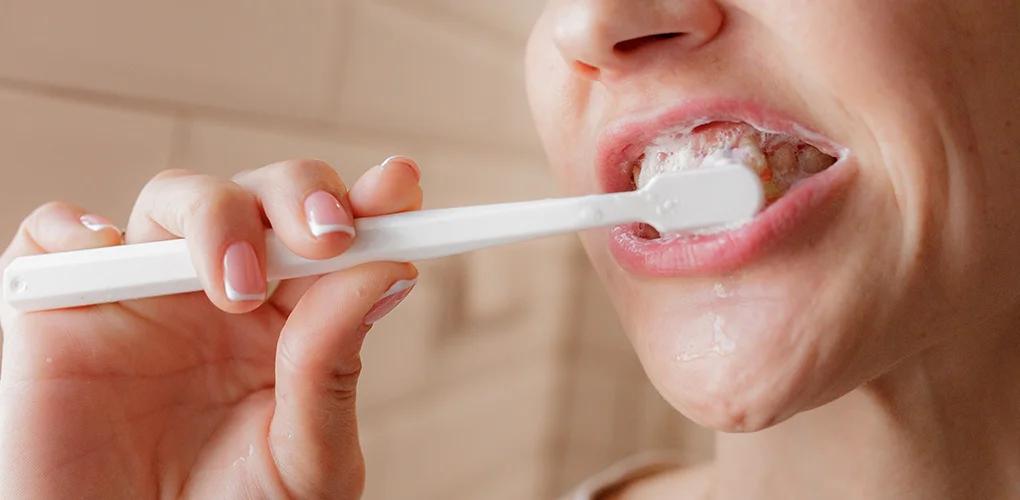`
Why Poor Oral Hygiene is More Serious Than You Think
Dental and oral health is an essential part of overall health and well-being. Poor oral hygiene can lead to dental cavities and gum diseases. Poor oral hygiene is also linked to heart disease, respiratory issues, diabetes, and other medical conditions. Maintaining healthy teeth and gums is a lifelong commitment. The earlier you learn proper oral hygiene habits such as brushing, flossing, and limited sugar intake the easier it will be to avoid costly dental procedures and long-term health issues.
Consequences of Poor Oral Hygiene
Maintaining good oral hygiene is essential for good oral health and overall physical health. Plaque accumulation begins in people with bad oral hygiene. People with poor oral hygiene are likely to have any of the following dental problems.
Dental Cavities:
Bad oral hygiene increases tartar buildup resulting in increased bacterial load. These bacteria start tooth decay and dental cavities occur.
Gum Disease:
Gum disease starts with the accumulation of plaque, a sticky film of bacteria that forms on the teeth. If not removed through regular brushing and flossing, plaque hardens into tartar, leading to gum inflammation and irritation.
Halitosis (Bad Breath):
Poor dental hygiene often contributes to persistent bad breath, known as halitosis. The buildup of bacteria and food particles in the mouth, especially between teeth and along the gumline, leads to an unpleasant odor.
Causes of Poor Oral Hygiene
The oral cavity has normal flora that is bacteria in small quantities. Living standards and hygiene practices can contribute to poor oral health. Several factors can contribute to poor oral hygiene:
- Smoking
- Inadequate Brushing
- Infrequent Flossing
- Sugary Foods and Beverages
- Lack of Regular Dental Checkups
Symptoms of poor oral hygiene
Bacteria from plaque buildup cause inflammation of gums. Increased inflammation of gums pulled the gums away from the tooth creating space for plaque accumulation. Common poor oral hygiene symptoms are as follows:
Prevention and Treatment of Poor Oral Hygiene
Oral hygiene can be maintained by taking care of dental and oral health. Everyone needs professional dental cleaning regardless of the oral care routine they follow. Some basic tips are given below to keep oral cavity healthy.
Proper brushing: Brushing twice daily with fluoride toothpaste helps to remove plaque from tooth surfaces. Make sure to brush all tooth surfaces.
Importance of flossing: Flossing helps to remove debris from interdental spaces. Food accumulation in interdental areas can lead to plaque accumulation and contribute to bad breath.
Healthy diet: A healthy diet keeps oral pH balance. It lowers the risk of dental caries and strengthens the gingiva.
Regular dental checkups: Regular dental checkups can help to diagnose the early signs of any dental issue.
Professional dental cleaning: A professional dental cleaning helps to get rid of plaque or tartar that has been missed while brushing and flossing.
Effects of Poor Oral Hygiene on Overall Health
Poor oral hygiene consequences are not only limited to the mouth. A person can develop serious medical conditions because of poor oral hygiene. Following the common systemic diseases that can occur or become worse due to poor oral hygiene.
Heart Disease
Oral health is directly linked to cardiac well-being. Bacteria from poor oral health can enter the bloodstream. These bacteria can contribute to or worsen atherosclerosis which will increase the risk of heart attack.
Diabetes
Diabetic individuals are at risk of periodontal issues. Oral inflammation due to periodontal problems lowers the body's ability to utilize insulin. Lack of insulin makes it difficult to control higher levels of blood sugar.
Respiratory Issues
Bacteria from the mouth can travel to the lungs and cause respiratory issues like pneumonia, chronic obstructive pulmonary disease (COPD), bronchitis, or any other lung infection.
infertility and Pregnancy Complications
Pregnant women with periodontal diseases are at risk of having premature delivery or a baby with low birth weight. Poor oral hygiene effects fertility in both men and women. Poor oral health can lower the sperm count in men.
Best Oral Hygiene Practices for Different Age Groups
Good oral hygiene is essential to maintain in all age groups. The best oral care practices depend on the individual's age and developmental stage.
Infants and Toddlers:
Avoid giving milk/juice bottle before bed and clean mouth with damp muslin cloth after feeding. Perform finger brushing infants to keep gums and teeth healthy.
Children and Teens:
Encourage brushing by the age of 3 with fluoride toothpaste. Encourage healthy meals and snacks. Start routine dental visits and dental cleaning from an early age.
Adults:
Brush your teeth twice daily and floss once a day. Limit sugary foods and drinks. Schedule dental appointment every 6 months.
`

